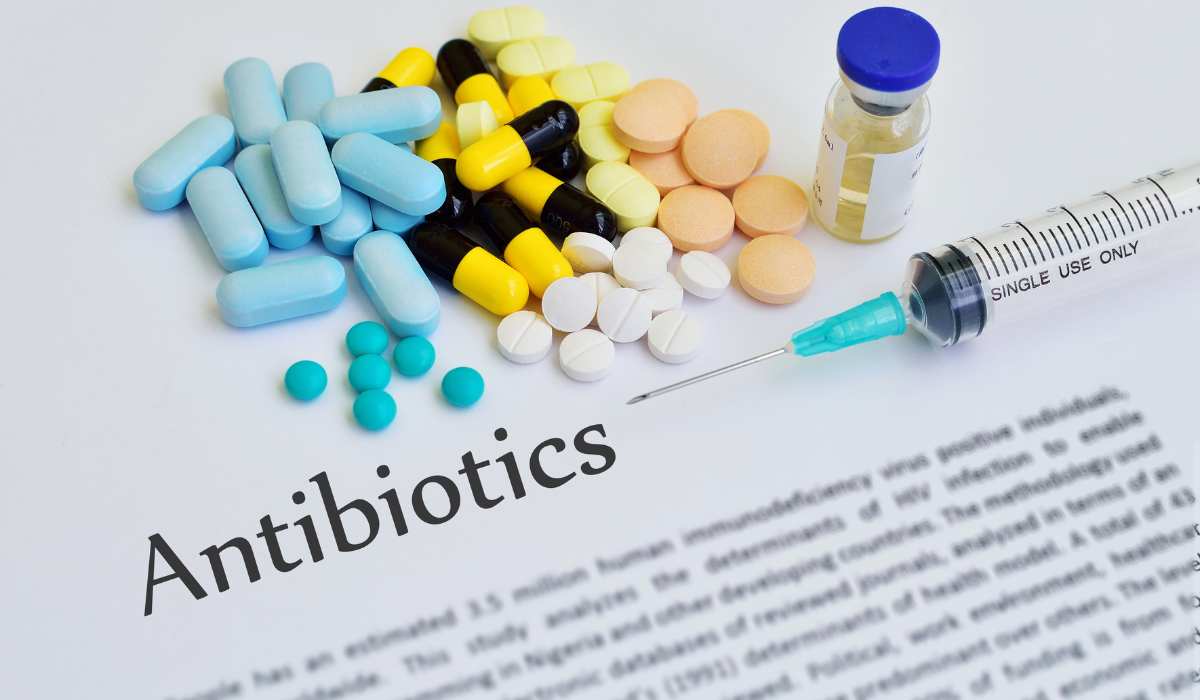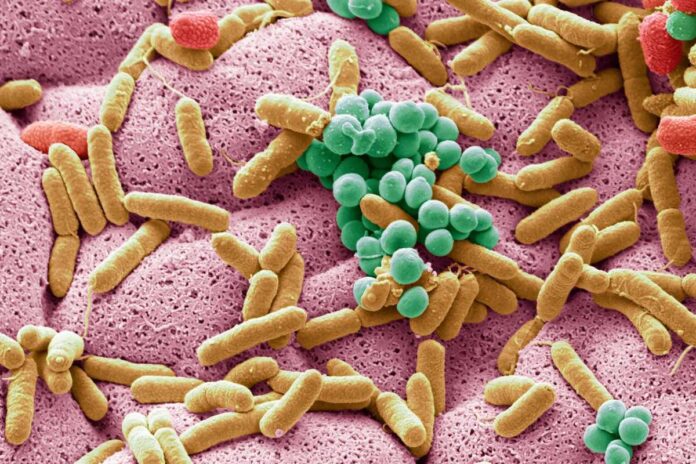Last Updated on February 22, 2024 by Dogs Vets
The intestinal microbiome, consisting of trillions of microorganisms, is a fundamental component of canine health.
This complex ecosystem, predominantly made up of bacteria, plays a critical role in various physiological functions, including digestion, immune system modulation, and even behavioral health through the gut-brain axis.
The diversity and balance of these microbial communities are crucial for nutrient absorption, synthesis of essential vitamins, and protection against pathogens.
Understanding the Canine Intestinal Microbiome
Composition: The Bacterial Communities
The canine gut hosts a diverse array of bacterial species, each playing a unique role in health and disease. The main types of bacteria include:
- Firmicutes and Bacteroidetes: Vital for breaking down dietary fibers and producing short-chain fatty acids, essential nutrients for the intestinal lining.
- Proteobacteria: While a normal part of the microbiome, an overrepresentation can indicate dysbiosis and potential health issues.
- Actinobacteria: Important for synthesizing certain vitamins and supporting gut health.
Functions: Beyond Digestion
The intestinal microbiome’s functions extend well beyond the digestion of food:
- Digestion: Facilitates the breakdown of complex carbohydrates, proteins, and fats.
- Immune System Support: Educates immune cells, distinguishing between friendly and harmful organisms.
- Protection Against Pathogens: Competes with harmful bacteria for nutrients and space, preventing overcolonization.
- Synthesis of Vitamins and Neurotransmitters: Produces essential vitamins like B and K, and neurotransmitters such as serotonin, influencing mood and behavior.
Factors Affecting Microbiome Diversity and Stability
Several factors influence the diversity and stability of the canine intestinal microbiome:
- Diet: The type and variety of food significantly impact microbial diversity.
- Age: Younger dogs typically have less diverse microbiomes than adults.
- Breed and Genetics: Certain breeds may have predispositions to specific microbiome configurations.
- Environment: Exposure to antibiotics, stress, and other environmental factors can disrupt microbiome balance.
Antibiotics and Their Impact on the Microbiome
How Antibiotics Work: Broad-Spectrum vs. Narrow-Spectrum
Antibiotics are designed to combat bacterial infections, but their effects on bacteria can vary significantly:
- Broad-Spectrum Antibiotics target a wide range of bacteria, both harmful and beneficial, leading to a more significant disruption of the gut microbiome.
- Narrow-Spectrum Antibiotics are more selective, targeting specific types of bacteria and minimizing the impact on the microbiome.
Antibiotic-Induced Dysbiosis
The use of Antibiotics in Dogs, especially broad-spectrum, can lead to dysbiosis, a state of microbial imbalance where beneficial bacteria are diminished, and harmful bacteria may proliferate.
This reduction in microbial diversity disrupts the gut’s delicate ecosystem, affecting its ability to perform essential functions.
Short-Term Effects
The immediate consequences of antibiotic-induced dysbiosis include:
- Diarrhea
- Loss of appetite
- Vomiting
- Gastrointestinal upset
Long-Term Effects
The long-term implications of reduced microbial diversity can be profound, including:
- Increased susceptibility to future infections
- Potential for chronic gastrointestinal disorders
- Adverse effects on immune system functioning

Section 3: Case Studies and Research Findings
Key Studies on Antibiotics and the Canine Intestinal Microbiome
Recent research highlights the significant impact of antibiotics on the gut microbiome. Studies have shown that even a single course of antibiotics can alter the microbial landscape for months, sometimes even permanently altering the microbial composition.
Real-World Impact
Case studies illustrate the tangible effects of these changes:
- A study on dogs with acute diarrhea showed that those treated with broad-spectrum antibiotics had a slower recovery of microbial diversity.
- Another case highlighted a dog developing a resistant infection after repeated antibiotic use, emphasizing the need for judicious antibiotic selection.
Section 4: Mitigating the Negative Effects of Antibiotics
Strategies for Preserving the Microbiome
To minimize the impact of antibiotics on the gut microbiome, several strategies can be employed:
- Probiotics: Supplementing with beneficial bacteria can help restore the microbiome.
- Prebiotics: Nutrients that stimulate the growth of beneficial bacteria can support microbiome recovery.
- Diet Management: A balanced and healthy diet for your dog can help maintain microbial diversity.

Guidelines for Responsible Antibiotic Use
Veterinarians can adopt practices to reduce the adverse effects of antibiotics:
- Selecting Appropriate Antibiotics: Use narrow-spectrum antibiotics when possible and reserve broad-spectrum antibiotics for specific cases.
- Correct Dosing: Follow accurate dosing guidelines to avoid under or overuse.
- Alternative Treatments: Consider non-antibiotic treatments when appropriate to avoid unnecessary disruption of the microbiome.
By integrating these strategies and guidelines, veterinary practitioners can safeguard the health of the canine intestinal microbiome while effectively managing bacterial infections.
This balanced approach ensures that antibiotics remain a valuable tool in veterinary medicine without compromising the overall health of the animal.
Formular begin
Section 5: The Future of Antibiotic Use and Microbiome Health in Dogs
Emerging Research on Microbiome-Friendly Therapies
The recognition of the microbiome’s critical role in canine health has spurred research into new, microbiome-friendly therapies. These include:
- Bacteriophage Therapy: Using viruses that target specific bacterial pathogens, offering a precise alternative to broad-spectrum antibiotics.
- Fecal Microbiota Transplantation (FMT): Transferring fecal matter from a healthy donor to a recipient to restore gut microbial balance, showing promise for treating various gastrointestinal disorders.
- Synbiotics: Combining probiotics and prebiotics to more effectively support the growth of beneficial gut bacteria and restore microbial balance.
The Role of Personalized Medicine
Personalized medicine, which tailors medical treatment to the individual characteristics of each patient, is becoming increasingly relevant in managing the microbiome and optimizing antibiotic treatments. This approach might involve:
- Genetic Profiling of the Microbiome: To identify specific vulnerabilities and tailor treatments accordingly.
- Custom Probiotic Formulations: Designed based on the individual’s microbiome analysis, addressing specific deficiencies or imbalances.
- Antibiotic Stewardship Programs: Implementing guidelines based on the latest research to minimize unnecessary antibiotic use and promote microbiome health.
Conclusion
The canine intestinal microbiome plays a fundamental role in health, affecting everything from digestion to immune function. However, the use of antibiotics, while essential for treating bacterial infections, can disrupt this delicate ecosystem, leading to short and long-term health issues.
As research advances, emerging therapies and the principles of personalized medicine offer promising avenues for preserving microbiome health while effectively managing infections.
Veterinarians and pet owners alike are called to consider the profound impact of antibiotics on the gut microbiome.
By integrating microbiome-friendly practices, such as judicious antibiotic use, probiotic supplementation, and exploring alternative therapies, we can protect and enhance the health and well-being of our canine companions.
Facts Check
We hope you enjoyed this article… What are your thoughts?
Please feel free to share this article!
e strive to provide the latest valuable information for pet lovers with accuracy and fairness. If you would like to add to this post or advertise with us, don’t hesitate reach us.
If you see something that doesn’t look right, contact us!

















